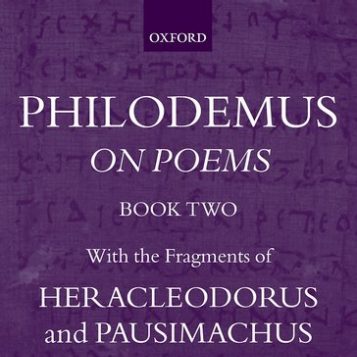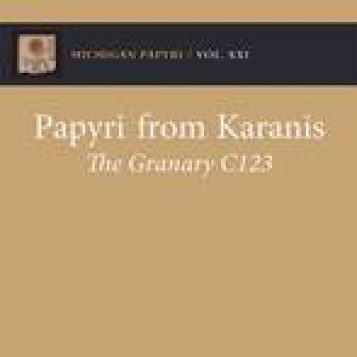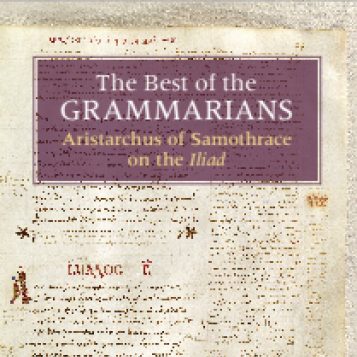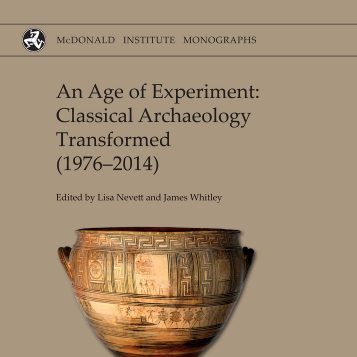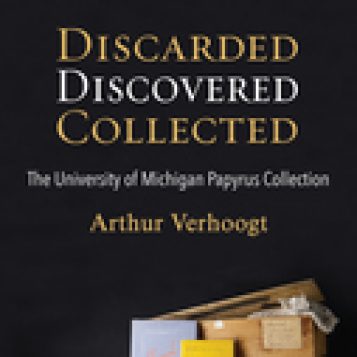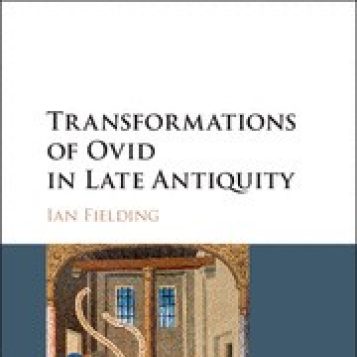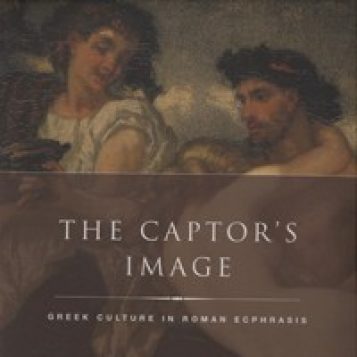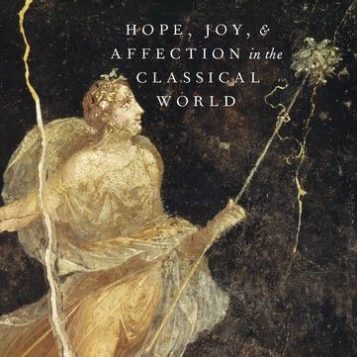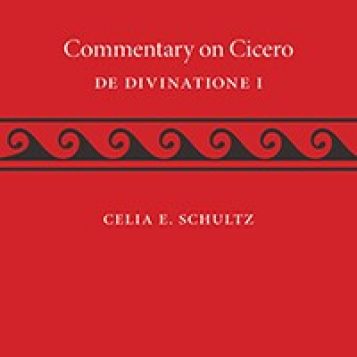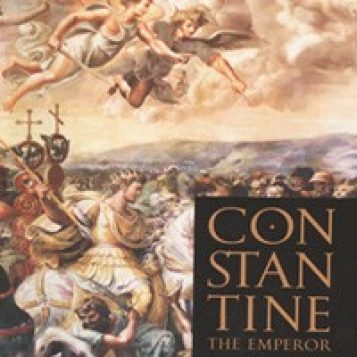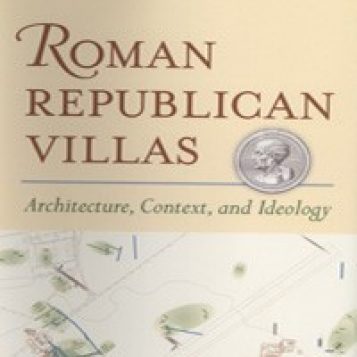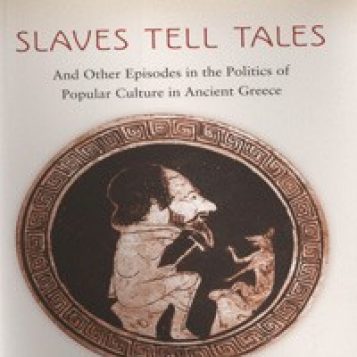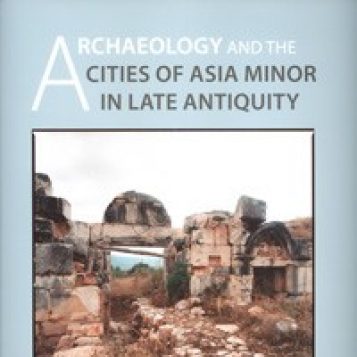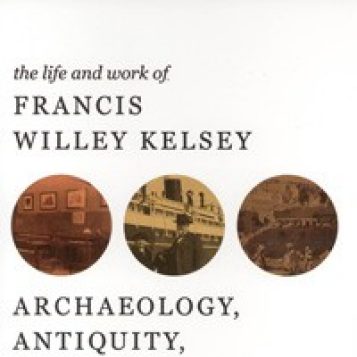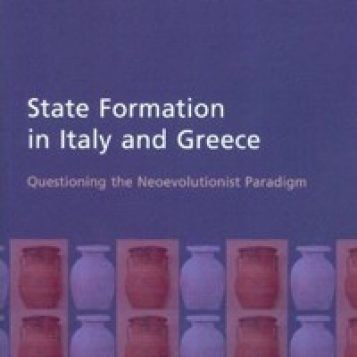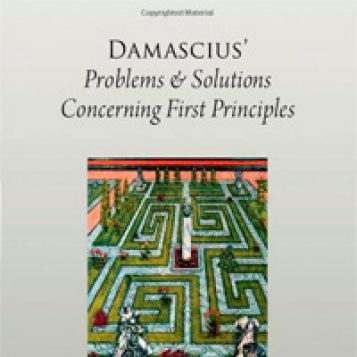- All News
-
- Search News
- Recent Faculty Publications
- Newsletters
- Archived News
- All Events
Highlighted Work and Publications
Philodemus: On Poems, Book 2
Richard Janko
With the fragments of Heracleodorus and Pausimachus
Papyri from Karanis: The Granary C123
W. Graham Claytor and Arthur Verhoogt, editors
Papyri from Karanis: The Granary C123 is the twenty- first volume of University of Michigan papyri and the fourth devoted to texts from the University’s excavations at Karanis. The volume offers a contextualized edition of thirty-seven documents found in a single structure, a large granary (C123) originally built in the first century CE, in addition to an analysis of the archaeology and history of the structure.
The documents are presented with an introduction, transcription of the original Greek or Latin, translation, commentary, and images. A unique community prayer to the...
See MoreThe Best of the Grammarians Aristarchus of Samothrace on the Iliad
Francesca Schironi
A founding father of the “art of philology,” Aristarchus of Samothrace (216–144 BCE) made a profound contribution to ancient scholarship. In his study of Homer’s Iliad, his methods and principles inevitably informed, even reshaped, his edition of the epic. This systematic study places Aristarchus and his fragments preserved in the Iliadic scholia, or marginal annotations, in the context and cultural environment of his own time.
Francesca Schironi presents a more robust picture of Aristarchus as a scholar than anyone has offered previously. Based on her analysis of over 4,300...
See MoreAn Age of Experiment: Classical Archaeology Transformed (1976-2014)
Edited by Lisa Nevett and James Whitley
What is Classical Archaeology’s place within the overall study of antiquity and the history of humanity? And what is its relationship to its kindred disciplines of ancient history, art history and Mediterranean prehistory? Forty or so years ago Classical Archaeology appeared to be a very conservative and rather niche area of scholarly endeavour.
Then both prehistorians and ancient historians might have answered that Classical Archaeology had little to offer their respective fields of study. Since the late 1970s, however, the subject has been transformed, a transformation in which...
See MoreDiscarded, Discovered, Collected
Arthur Verhoogt
Discarded, Discovered, Collected provides an accessible introduction to the University of Michigan’s collection of papyri and related ancient materials, the widest and deepest resource of its kind in the Western hemisphere. The collection was founded in the early part of the 20th century by University of Michigan Professor of Classics Francis W. Kelsey. His original intention was to create a set of artifacts that would be useful in teaching students more directly about the ancient world, at a time when trips to ancient sites were much harder to arrange.
Jointly administered...
Transformations of Ovid in Late Antiquity
Ian Fielding
Ovid could be considered the original poet of late antiquity. In his exile poetry, he depicts a world in which Rome has become a distant memory, a community accessible only through his imagination. This, Ovid claimed, was a transformation as remarkable as any he had recounted in his Metamorphoses. Ian Fielding's book shows how late antique Latin poets referred to Ovid's experiences of isolation and estrangement as they reflected on the profound social and cultural transformations taking place in the fourth, fifth and sixth centuries AD. There are detailed new readings of texts by major figures...
See MoreThe Captor’s Image: Greek Culture in Roman Ecphrasis
Basil Dufallo
An influential view of ecphrasis--the literary description of art objects--chiefly treats it as a way for authors to write about their own texts without appearing to do so, and even insist upon the aesthetic dominance of the literary text over the visual image. However, when considering its use in ancient Roman literature, this interpretation proves insufficient. The Captor's Image argues for the need to see Roman ecphrasis, with its prevalent focus on Hellenic images, as a site of subtle, ongoing competition between Greek and Roman cultures. Through close readings of ecphrases in a wide range...
See MoreTags: Roman History , Roman Literature , Classical Studies
Hope, Joy, and Affection in the Classical World
By Ruth R. Caston and Robert A. Kaster
The emotions have long been an interest for those studying ancient Greece and Rome. But while the last few decades have produced excellent studies of individual emotions and the different approaches to them by the major philosophical schools, the focus has been almost entirely on negative emotions. This might give the impression that the Greeks and Romans had little to say about positive emotion, something that would be misguided. As the chapters in this collection indicate, there are representations of positive emotions extending from archaic Greek poetry to Augustine, and in both philosophical...
See MoreA Commentary on Cicero, De Divinatione I
Celia E. Schultz
A Commentary on Cicero, De Divinatione I, is the first English-language commentary on the Latin text of Marcus Tullius Cicero’s dialogue in almost one hundred years. The defense of divination (the science of predicting the future) offered in Book 1 is illustrated with many entertaining anecdotes that make the argument more accessible to a wider range of readers than many of Cicero’s other philosophical works. De Divinatione also preserves many fragments of otherwise lost masterpieces of Roman Republican literature. It is a text important for the study of Roman religion, as well as Roman political...
See MoreTags: Latin , Classical Studies
Constantine the Emperor
David Potter
This year Christians worldwide will celebrate the 1700th anniversary of Constantine's conversion and victory at the Battle of the Milvian Bridge. No Roman emperor had a greater impact on the modern world than did Constantine. The reason is not simply that he converted to Christianity but that he did so in a way that brought his subjects along after him. Indeed, this major new biography argues that Constantine's conversion is but one feature of a unique administrative style that enabled him to take control of an empire beset by internal rebellions and external threats by Persians and Goths. The...
See MoreTags: Roman History , Roman Literature
Roman Republican Villas: Architecture, Context and Ideology
Jeffrey Becker, Nicola Terrenato
The Papers and Monographs of the American Academy in Rome.
The Roman villa is a classic icon of Western culture, and yet villa can be used to cover a multiplicity of ideas, experiences, and places. In the late Republic and early Imperial periods, villas are inseparable from elite lifestyles, providing a prestigious setting for leisurely and intellectual pursuits. But how did these advanced buildings come about? Roman Republican Villas examines key aspects of early villa culture and architecture, with the goal of understanding the development and deployment of villas in Republican...
See MoreTags: Classical Studies
Slaves Tell Tales: And Other Episodes in the Politics of Popular Culture in Ancient Greece
Sara Forsdyke
Most studies of ancient Greek politics focus on formal institutions such as the political assembly and the law courts, and overlook the role that informal social practices played in the regulation of the political order. Sara Forsdyke argues, by contrast, that various forms of popular culture in ancient Greece--including festival revelry, oral storytelling, and popular forms of justice--were a vital medium for political expression and played an important role in the negotiation of relations between elites and masses, as well as masters and slaves, in the Greek city-states. Although these forms...
See MoreArchaeology and the Cities of Asia in Late Antiquity
Dally, Ortwin and Christopher Ratté, editors, 2011.
The city was the fundamental social institution of Greek and Roman culture. More than the sack of Rome, the abandonment of provincial towns throughout the Mediterranean world in late antiquity (fourth-seventh centuries A.D.) marks the beginning of the Middle Ages. This volume examines archaeological evidence for this last phase of urban life in Asia Minor, one of the Roman empire¹s most prosperous regions. Based on the proceedings of a symposium co-sponsored by the University of Michigan and the German Archaeological Institute, it brings together studies by an international group of scholars...
See MoreTags: Roman Literature
The Life and Work of Francis Willey Kelsey: Archaeology, Antiquity, and the Arts
by John G Pedley
President of the Archaeological Institute of America, professor at the University of Michigan from 1889 to 1927, and president of the American Philological Association, Francis Kelsey was crucially involved in the founding or growth of major educational institutions. He came to maturity in a period of great technological change in communications, transportation, and manufacturing. Kelsey took full advantage of such innovations in his ceaseless drive to promote education for all, to further the expansion of knowledge, and to champion the benefits of the study of antiquity.
A vigorous traveler...
See MoreState Formation in Italy and Greece: Questioning the Neoevolutionist Paradigm
by Donald Haggis (Editor), Nicola Terrenato (Editor)
This volume collects 14 papers on the process of state formation in the Aegean and in Italy. Based on a conference held at the University of North Carolina at Chapel Hill in 2003, this collection of essays offers an up-to-date and comprehensive sampler of the current discourse concerning state formation in the central Mediterranean. While comparative approaches to the emergence of political complexity have been applied since the 1950s to Mesopotamia, Mesoamerica, Peru, Egypt and many other contexts, Classical Archaeology has not played a very active role in this debate. Here for the first time...
See MoreThe Victor's Crown by Prof. David Potter, Published in February, 2011
Damascius' Problems and Solutions Concerning First Principles (Aar Religions in Translation)
Sara Ahbel-Rappe
Damascius was head of the Neoplatonist academy in Athens when the Emperor Justinian shut its doors forever in 529. His work, Problems and Solutions Concerning First Principles, is the last surviving independent philosophical treatise from the Late Academy. Its survey of Neoplatonist metaphysics, discussion of transcendence, and compendium of late antique theologies, make it unique among all extant works of late antique philosophy. It has never before been translated into English.
The Problems and Solutions exhibits a thorough going critique of Proclean metaphysics, starting with the principle...
See More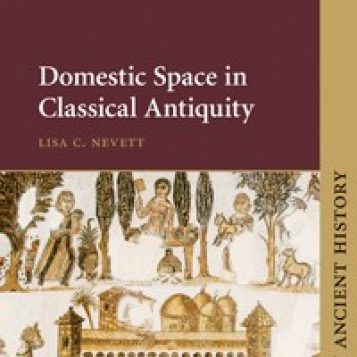
Domestic Space in Classical Antiquity
Lisa Nevett
Housing is shaped by culturally-specific expectations about the kinds of architecture and decoration that are appropriate; about how and where different activities should be carried out; and by and with whom. It is those expectations, and the wider social and cultural systems of which they are a part, that are explored in this volume. At the same time, the book as a whole argues two larger points: first, that while houses, households and families have in recent years become increasingly important as objects of inquiry in Greek and Roman contexts, their potential as objects of inquiry has yet to... See More
